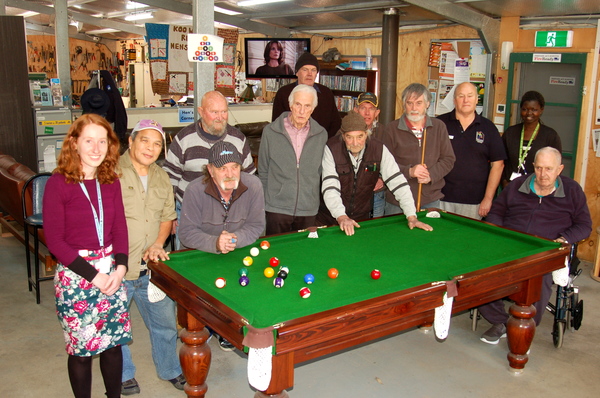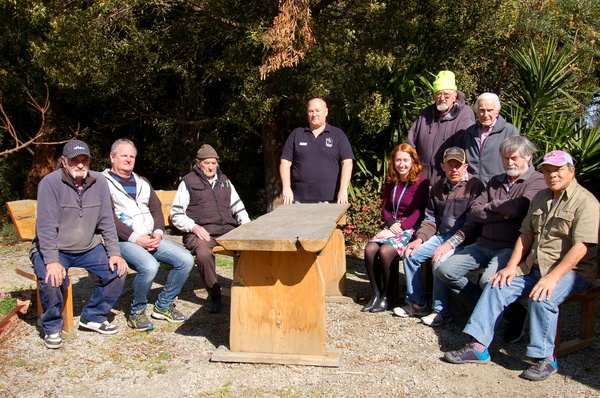
By Bonny Burrows
The Kooweerup Men’s Shed has been cited in an academic research paper for its health and environmental benefits.
The local men’s group was the focal point of the short report Health and Environmental Impacts of a Regional Australian Men’s Shed Program, in the Australian Journal of Rural Health 2017.
In the research, conducted by Deakin University’s Laura Ayres, Rebecca Patrick and Teresa Capetola, it is revealed that the Kooweerup Men’s Shed had “fostered human health and environmental sustainability benefits for shed participants and the wider community”.
“Participants and staff described individual mental and social health benefits for male participants, including developing a sense of purpose, increased self-confidence, mateship and social connectedness, and informal support,” the report reads.
The Gazette paid a visit to the men’s shed on 30 August to see the results for itself.
Head of the shed George Fittock said the group’s aim was to provide a safe environment for men of all ages, backgrounds and abilities to come together, interact socially and seek support.
“There’s not a perfect man in the shed,” Mr Fittock said, adding that for many, walking through the doors for the first time was a major step.
“For some men it takes a while to get here, and then it takes a while for them to talk. But once they open up, we try to get them the assistance and help they need.
“The concept is about maximising the health and wellbeing of that individual.”
While the local shed concentrates on men’s health and wellbeing, participants also spoke of finding friendship, companionship and learning new skills.
The research paper also highlighted the shed’s strong environmental benefits, in many ways thanks to the community garden and Kooweerup Regional Health Service’s Eco House which is situated next to the men’s shed.
“Staff members have suggested (it) has helped further encourage environmental awareness among shed participants,” the research paper read.
“Results indicated the men’s shed promoted environmental sustainability and positive human-environmental relationships through recycling, organic gardening, compositing, water cultivation, habitat protection and worm farming activities.”
Mr Fittock said the shed was successful because of its long opening hours and vast program.
Along with a regular timetable which includes Wednesday lunches and weekly health checks, participants also coordinate with local schools and community groups on projects.
The shed’s calendar is also jam-packed with social events for the whole family.
“We’re very much involved in the community and we get a lot of community support back,” Mr Fittock said.
Men came from Loch, Drouin, Cranbourne, Pakenham and Nar Nar Goon to access the service, bypassing their local sheds, Mr Fittock said.
“People drive past their local men’s sheds to get here,” Mr Fittock said.
“A lot of sheds only operate for a couple of hours one day a week, and that’s what we started with but we quickly realised that wouldn’t work.”
The shed now operates six days a week and has 60-plus members.
On average, 300 men will walk through its doors each month and the majority of them stay.
Ms Ayres said that when working on the research paper it was quite clear of the reason of the shed’s success.
“The men enjoy coming here… that friendship is one of a kind,” Ms Ayres said.
“The research was quite rich from here.”
More information about the shed is available from Kooweerup Regional Health Service on 5997 9679.








